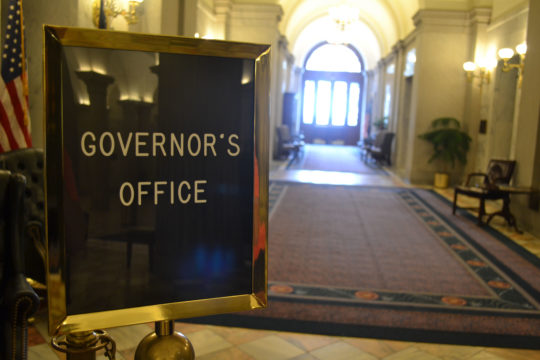Why Can’t the Governor Pick His Own Advisers?
By BRYCE FIEDLER
As it turns out, the now suspended V.C. Summer project isn’t the only nuclear concern in South Carolina.
The Governor’s Nuclear Advisory Council (NAC) met on October 11th to discuss the troubles facing a poorly managed plutonium fuel construction operation at the Savannah River Site. In the aftermath of the V.C. Summer project, this nuclear operation and the council tasked with overseeing it have mostly existed in the background, overlooked by many.
So, exactly who sits on this council and what do they do?
The council is comprised of nine members. Seven of the members are appointed by the Governor and confirmed by the Senate. The remaining two are appointed directly by legislative leadership – the Senate President Pro Tempore and the Speaker of the House. That’s correct, the legislature has direct control over who sits on the Governor’s Nuclear Advisory Council.
When selecting certain cabinet agency officials, the Senate must confirm the Governor’s appointments, but the NAC is not a cabinet agency. In fact, it’s “independent of the South Carolina Department of Administration”. It is, however, considered one of the state’s approximately 250 boards and commissions, over which the governor’s appointment power varies from board to board.
So, does the function of this board merit such legislative input? Not really. The law states clearly that the NAC “shall be responsible to and report to the Governor.” Their duties boil down to fact-finding and providing recommendations to the Governor concerning nuclear material, in addition to “other duties” he may request. Essentially, the council has no power and exclusively serves the Governor.
Unlike the NAC, there are several state boards over which the Governor has sole appointment authority, such as the State Board of Chiropractors. This board actually has considerable power. It’s responsible for enforcing numerous laws and screening potential chiropractors. This highlights the inconsistency in our laws. If the legislature doesn’t have authority over boards with real power, why do they have authority over ones that don’t?
Not to mention, executives picking their own advisors is the norm.
Consider the litany of advisors appointed by the President. In 2013, the Government Accountability Office documented over 300 government positions appointed solely by the President, the majority are serving on commissions, councils, and the like. The function of these positions virtually mirror that of the Nuclear Advisory Council – to provide advice and support. One can’t be blamed for questioning why we don’t follow the same structure.
The intragovernmental overreach here is completely lopsided. Just imagine the Governor trying to tell legislative leaders who they should select for their Senate and House nuclear investigation committees. Clearly that would never happen, because those committees exist beyond the Governor’s authority. Similarly, whom the governor selects for his Nuclear Advisory Council should not be left up to the legislature.
In truth, this issue extends far beyond an executive advisory board. The legislature has its hand in nearly every aspect of government in South Carolina, from the judiciary, energy, education, and the economy. This instance is a symptom of a larger structural problem, and serves as a reminder of just how boundless their sphere of influence really is.

